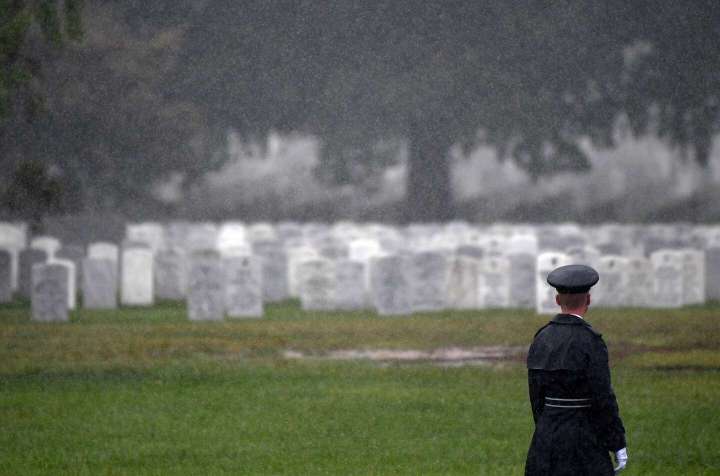Twenty-one years after the destruction of the World Trade Center towers in Lower Manhattan, one can ask whether the United States has yet learned the principal lesson of that shocking, savage day. It is a lesson well-known to military planners, yet hard for a nation with allies on its borders and oceans at its sides to believe bone-deep.
21 years after 9/11, the war has not ended for anyone

In the starting and ending of wars, the letting of blood and the waging of battle, the enemy has a vote. The day that has come to be known as 9/11 began a war only for us; for the enemy, the war had been raging for years. The little army of Osama bin Laden had hit American embassies in Africa, bombed a U.S. naval ship at Aden Harbor in Yemen, even signaled its intentions to destroy the twin towers by planting a truck bomb in a World Trade Center garage in 1993.
The audacity of 9/11 — using 19 al-Qaeda fighters, civilian lives and lakes of jet fuel to carry out a massively destructive attack — finally convinced Americans that we were at war. And for the next 20 years, we fought until we tired of the idea.
Every president going back to George W. Bush wanted to end the awful business. “Mission Accomplished,” one banner declared as early as 2003. Barack Obama promised to wrap things up. Donald Trump also promised to wrap things up and negotiated the withdrawal of American troops from Afghanistan. President Biden completed the withdrawal in ugly fashion just in time for the 20th anniversary of 9/11.
But we no more control the ending of the war than we controlled the beginning. With the drone-strike killing of al-Qaeda leader Ayman al-Zawahiri in July, the known enemy commanders of 9/11 are all captured or dead. Yet the enemy has morphed and migrated. The war has not ended for the Islamic State or for other violent jihadist groups around the world. It hasn’t ended for the governments offering them support and encouragement.
Follow David Von Drehle‘s opinions
FollowTherefore, the war has not ended for us.
What’s more, it is impossible to say when, or even how, it might come to an end. These 21 years since 9/11 have changed the tactics and appearance of war, and not necessarily for the better. Though the United States continues to train and equip hundreds of thousands of conventional troops, and to arm them with the latest weapons, most of our fighting against terrorists is done by small teams of highly skilled commandos — Navy SEALs, Army Rangers and so on — from the Special Operations forces (SOF).
Rarely do we see or hear of their work. They fight mostly by night, often in places where their presence is unacknowledged. They work to weaken terrorist networks and preempt attacks. Often this involves up-close combat and intimate killing in places where information can be unreliable and identities confused.
Gradually we are learning of the trauma and damage this work can cause among even the strongest, best-trained, most carefully vetted warriors. The human mind and soul are not constituted for endless years of risking and inflicting violence in nightly doses. A 2019 article in the Journal of Special Operations Medicine pointed out this wrenching juxtaposition of vulnerable souls inside hardened shells by noting:
“In 2017, one of the largest suicide studies in military history concluded that SOF had nearly zero risk of suicide, asserting SOF are highly resilient due to their ‘rigorous selection, intense training, strong unit cohesion, or psychological and biological characteristics.’ In 2018, SOF suicides tripled.”
Because we cannot see what these warriors do on our behalf and in our name, we make cultural cartoons of them — Rambos and video game avatars. No doubt some of them come to see themselves in those same terms. But they are not cartoon supermen; they are human beings — highly skilled and disciplined, but still human. And they are bearing extraordinary weight in a war without clear boundaries: physical, temporal or moral. A war that will end only when the enemy consents to end it.
As the journalist Dan Taberski brilliantly documented in his 2021 podcast “The Line,” the fogged frontier between war and not-war, combatants and noncombatants, permissible and nonpermissible violence takes a profound toll on the people assigned to navigate the morass.
“The job that they do hurts them and hurts their families,” a former Navy psychiatrist named Bill Nash says on the podcast.
Though the American public is tired of war, and the United States’ leaders prefer to act as if it is all over, American warriors must continue to fight because our enemies still have a vote. As another 9/11 anniversary comes and goes, we owe it to those warriors to remember them, to care for them, and to honor their sacrifices of body and soul.






